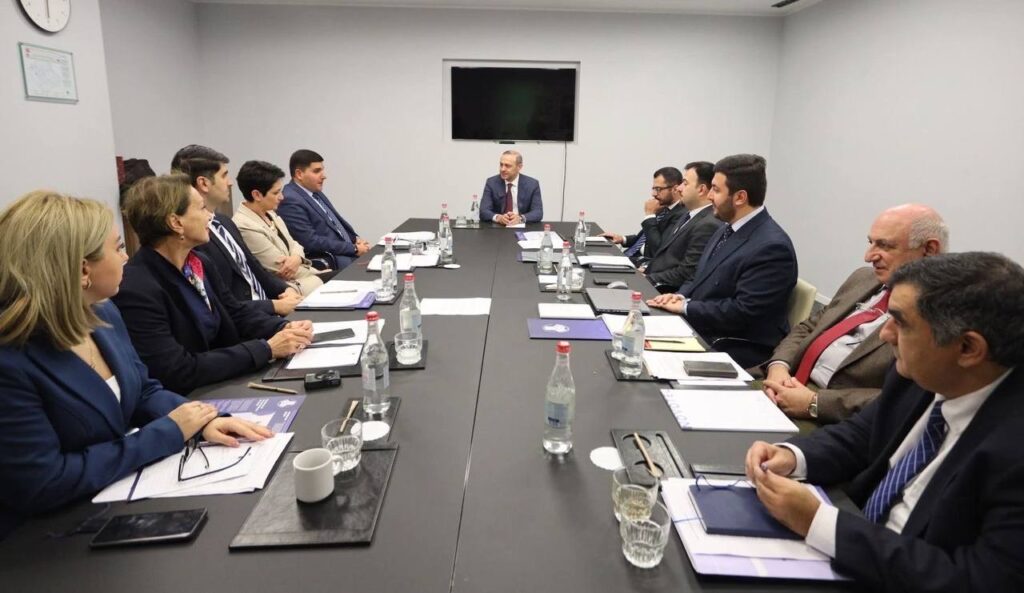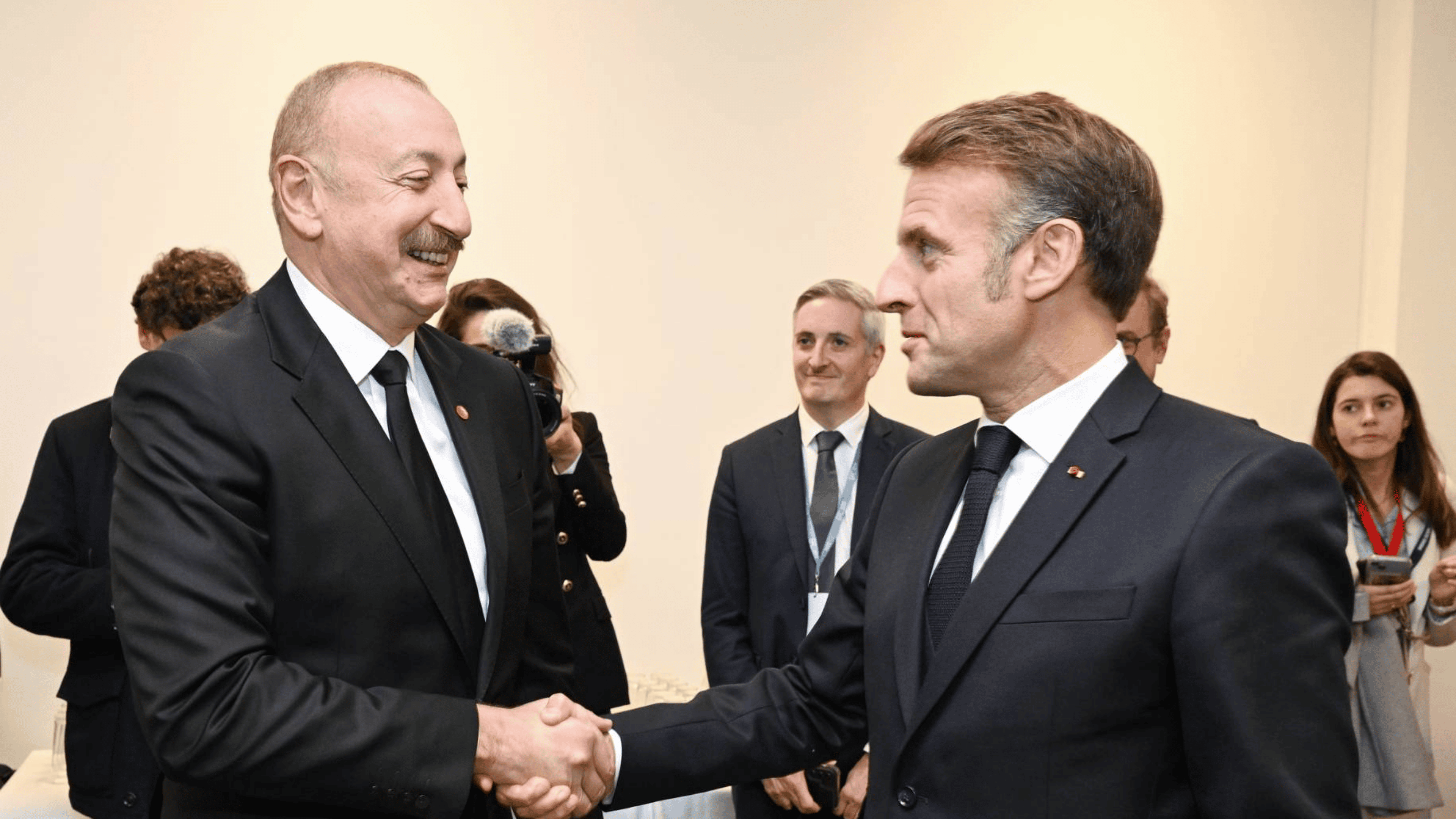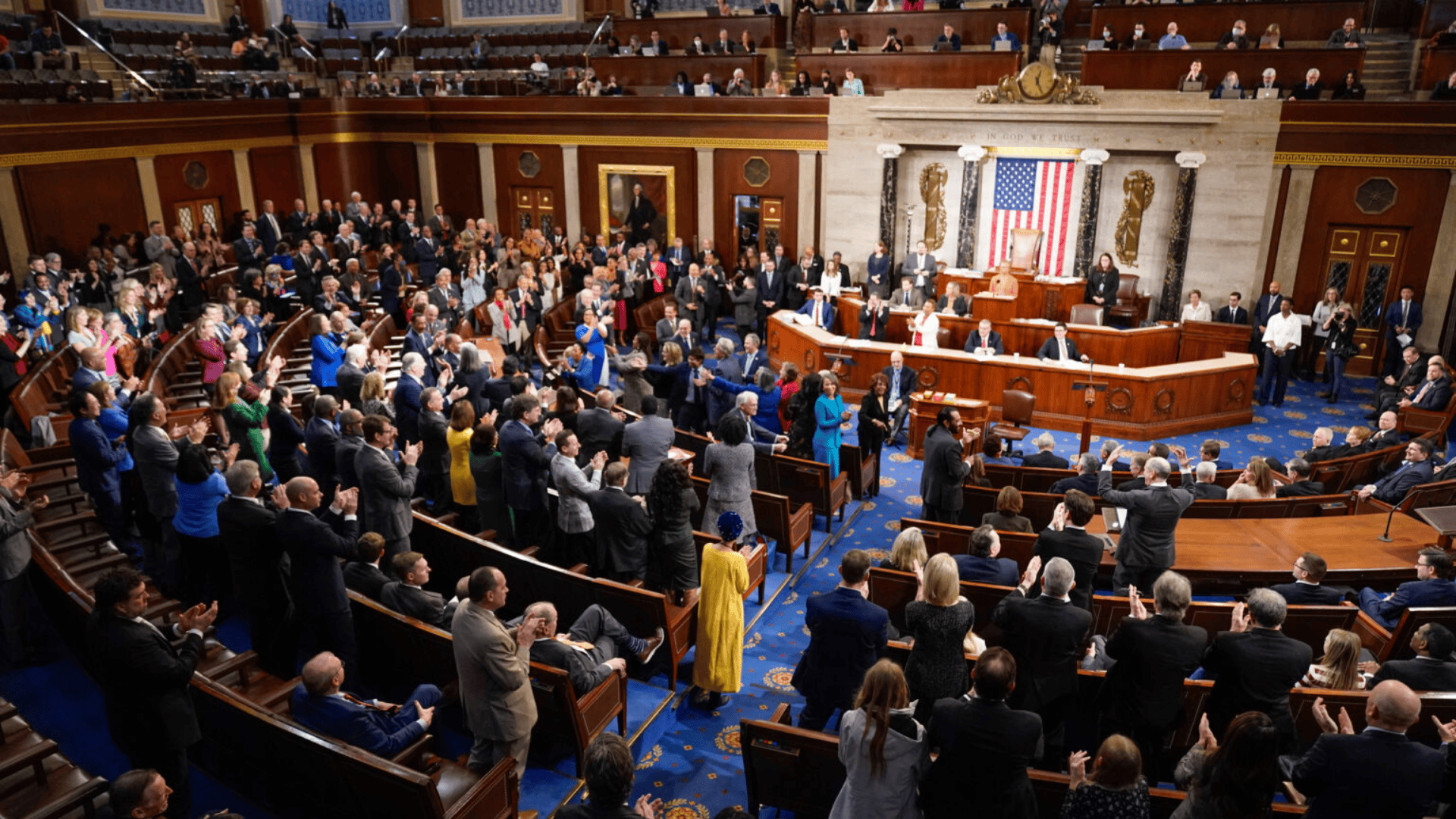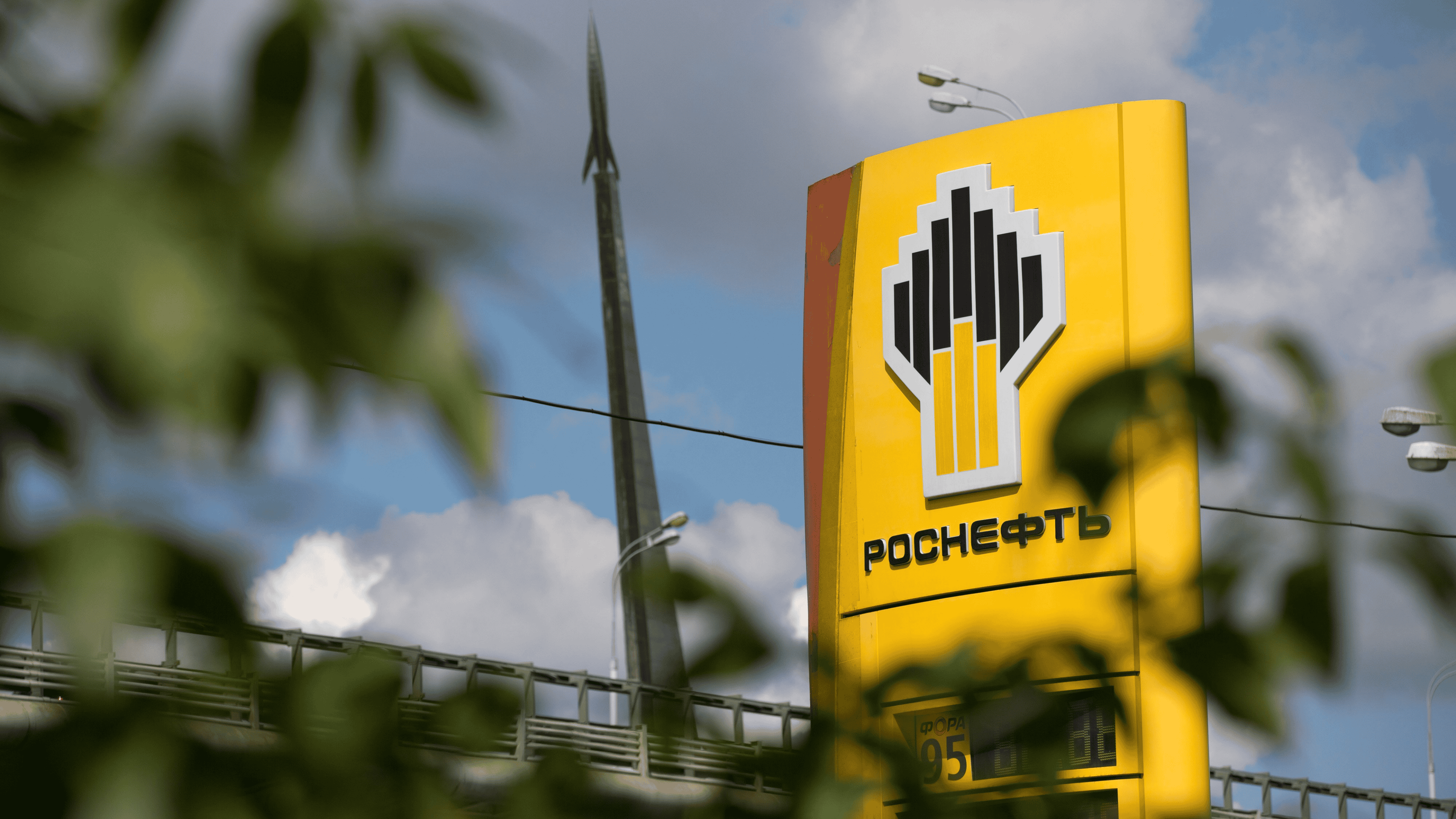Visit of Estonia’s foreign minister to Baku: a clash of values and interests
Estonia’s relations with Azerbaijan
Estonian Foreign Minister Margus Tsahkna recently paid an official visit to Baku. Leading a delegation of representatives from 15 companies, he held meetings with the country’s political leadership and emphasized the importance of strengthening cooperation in the economic and digital sectors.
In his speeches in Baku, Tsahkna called Azerbaijan an “important partner” in the South Caucasus, highlighted the interest of Estonian companies in operating in the country, and announced that he would propose to the Tallinn government the opening of a full-fledged embassy in Baku.
The visit agenda included a business forum, digital innovation projects, and discussions on regional peace and security.
Human rights and democracy were not addressed in any official statements.
This highlights a contradictory situation, where Estonia, guided by democratic values, is developing close cooperation with authoritarian Azerbaijan.

Purpose of the visit: business, digital cooperation, and a peace agenda
During his visit to Baku, Estonian Foreign Minister Margus Tsahkna focused on two main areas: expanding economic and digital cooperation, and regional security issues.
Economic and digital cooperation
On October 22, Tsahkna took part in the Estonian-Azerbaijani business seminar, noting that the delegation included representatives from 15 Estonian companies. Among them was B.EST Solutions, which has been operating in Azerbaijan for many years in the field of e-government.
Fifteen years ago, this Estonian company helped build the infrastructure for ASAN İmza, the mobile digital signature system that underpins nearly 2,000 electronic public services in Azerbaijan.
“In areas such as digital governance and data protection, Estonia has advanced expertise, and during this visit we are encouraging our companies to participate in new projects in Azerbaijan,” Tsahkna emphasized.
Some companies signed agreements with Azerbaijani partners during the visit. For example, the Estonian company Fleetguru signed a contract with its first local partner to enter the fleet management market in Azerbaijan.
The Estonian minister highlighted the importance of such officially organized business missions, noting that “in countries where decision-making processes are hierarchical, government support plays a key role in opening doors for business.”
Second focus: political agenda
Margus Tsahkna held meetings in Baku with Azerbaijani President Ilham Aliyev and Foreign Minister Jeyhun Bayramov. According to official statements, the discussions covered:
- Security issues in the Baltic Sea region
- The peace process between Azerbaijan and Armenia
- Russian aggression against Ukraine
The Estonian foreign minister emphasized that stability in the South Caucasus is key to Europe’s overall security and stated that Estonia will continue to support both Azerbaijan and Armenia on the path to comprehensive peace.
During the meetings, Tsahkna specifically said that “Estonia and Azerbaijan share a number of geopolitical principles and values.”
He also highlighted cooperation in education, noting that it helps strengthen mutual understanding and bring peoples closer together.
Observers say Tallinn’s decision to open an embassy in Baku reflects Estonia’s growing interest in the region.
Tsahkna himself called Azerbaijan an important partner in the South Caucasus during his meeting with President Aliyev and stated that upgrading the current honorary consulate to a full embassy will further strengthen bilateral relations.
Since 2006, Estonia has been represented in Azerbaijan through an honorary consul; now, for the first time, the Baltic country is preparing to upgrade its diplomatic representation to the level of an embassy.
Official Baku is clearly interested in developing ties with Estonia
During his meeting with Margus Tsahkna, President Ilham Aliyev noted that relations between Azerbaijan and the European Union have recently shown positive momentum, particularly in the energy and transport sectors, where new opportunities for cooperation are emerging.
Aliyev also said that recent meetings involving European Commission President Ursula von der Leyen and European Council President António Costa included discussions on expanding cooperation between Azerbaijan and the EU.
Against this background, it is clear that the visit had not only a bilateral significance but also a broader purpose: strengthening Azerbaijan’s relations with Europe.
The Estonian minister, in turn, emphasized that his country supports the development of Azerbaijan’s ties with the EU and NATO and highly values the progress in dialogue between Baku and Brussels.
Why does Estonia place special importance on cooperation with Azerbaijan?
Statements made during the visit make it clear that economic opportunities and strategic significance are the main factors driving Tallinn’s interest.
Economically, the Azerbaijani market offers Estonian companies not only the chance to expand already successful projects but also opportunities to enter new sectors.
Strategically, Azerbaijan matters to Estonia not only as a country rich in energy resources but also as a key link in transport routes connecting Europe and Asia, including the so-called Middle Corridor – the Trans-Caspian trade route.
In recent years, Tallinn has actively supported EU efforts to reduce energy dependence on Russia.
In this context, Azerbaijani gas serves as an alternative source for Europe.
In 2022, the European Commission signed a Memorandum of Strategic Partnership in Energy with Azerbaijan, aiming to double Azerbaijani gas exports to the EU by 2027.
However, the European Parliament criticized the agreement, calling to stop “creating Europe’s energy dependence on Baku.”
In an October 2024 resolution, the Parliament noted that systematic human rights violations in Azerbaijan are incompatible with its energy ambitions in relations with the EU.
It demanded that any new comprehensive agreement between Brussels and Baku be linked to the release of political prisoners, legal reforms, and overall improvement of the human rights situation.
Developing relations with Baku serves Europe’s pragmatic interests
Despite calls to the contrary, several EU countries, including Estonia, prefer to maintain dialogue with Baku, guided by pragmatic interests.
Estonian officials clearly believe that cutting ties with Azerbaijan would be ineffective.
They see active support for the regional peace process and strengthening Baku’s links with Western institutions as far more productive.
For Tallinn, countering Russian aggression remains a priority.
Every country supporting Ukraine, including Azerbaijan, is therefore considered a valuable partner.
Tsahkna specifically highlighted Azerbaijan’s assistance to Ukraine, noting that during the war the country supplied generators, transformers, and helped restore energy infrastructure. He said these steps are particularly important for Estonia in the context of global solidarity against Kremlin aggression.
However, this pragmatic policy, which brings Estonia short-term economic and strategic benefits, also raises difficult questions, particularly regarding the democratic values that are central to its international image.
Topic off the agenda: human rights violations and democracy in Azerbaijan
A notable aspect of Estonian Foreign Minister Margus Tsahkna’s visit to Baku was the absence of any mention of democracy or human rights.
Neither Tsahkna nor Azerbaijani officials referred in public statements to the country’s internal political situation, the need for reforms, or the state of political freedoms.
Meanwhile, recent reports from international human rights organizations paint a very concerning picture in Azerbaijan.
In its World Report 2025, Human Rights Watch notes that Azerbaijani authorities launched a new wave of persecution against critics in late 2023 and early 2024, ahead of the UN COP29 climate conference in Baku.
In the lead-up to the summit, dozens of journalists, human rights defenders, and activists were arrested on fabricated charges, freedom of expression and assembly was heavily restricted, and laws paralyzing independent NGOs were tightened.
None of these issues were raised during Tsahkna’s visit. Tallinn chose not to address human rights in official dialogue, at least publicly.
While some concerns may have been discussed behind closed doors, no available reports indicate that these topics were actually raised.
On the contrary, all of Tsahkna’s statements were deliberately focused on economic, trade, and diplomatic issues.
Conclusion: seeking a balance between values and interests
Margus Tsahkna’s visit to Baku highlights Estonia’s delicate balancing act between principles and pragmatism.
On one hand, Estonia’s foreign policy is grounded in democracy, human rights, and the rule of law. Tallinn has long defended these values on international platforms such as the EU, NATO, UN, and the Council of Europe. Estonia has established itself as a consistent supporter of sanctions against authoritarian regimes like Russia and Belarus, as well as reforms in post-Soviet countries such as Ukraine and Georgia.
On the other hand, as a small state, Estonia also pursues economic and strategic interests, which sometimes lead it to cooperate with authoritarian countries.
Like other EU members, Estonia must balance values with energy and economic considerations, particularly amid Brussels’ rapprochement with Baku to diversify gas supplies.
This approach, however, can be seen by critics as double standards.
Independent analysts specializing in the South Caucasus note that some EU members overlook Azerbaijan’s authoritarian governance to gain access to its energy resources.
Easing requirements and engaging with Baku without preconditions may contribute to a sense of impunity, indirectly increasing pressure on civil society.
The Estonian government, like many in the EU, likely hopes that partnership with Azerbaijan will encourage the country toward greater Western integration and, in the long term, create conditions for internal reforms.
Some experts agree that constructive dialogue can be more effective than isolation or public criticism. As Azerbaijan integrates economically and aligns with EU markets, it will be compelled to adapt governance standards and legal norms.
If a new agreement with the EU is signed, rule-of-law and good governance criteria will become an integral part of it.
Most analysts agree that the clash between values and interests should not delay the promotion of fundamental principles. Western countries, even while cooperating, must not abandon their core values and are obliged to encourage their partners to uphold them.
News from Azerbaijan






















